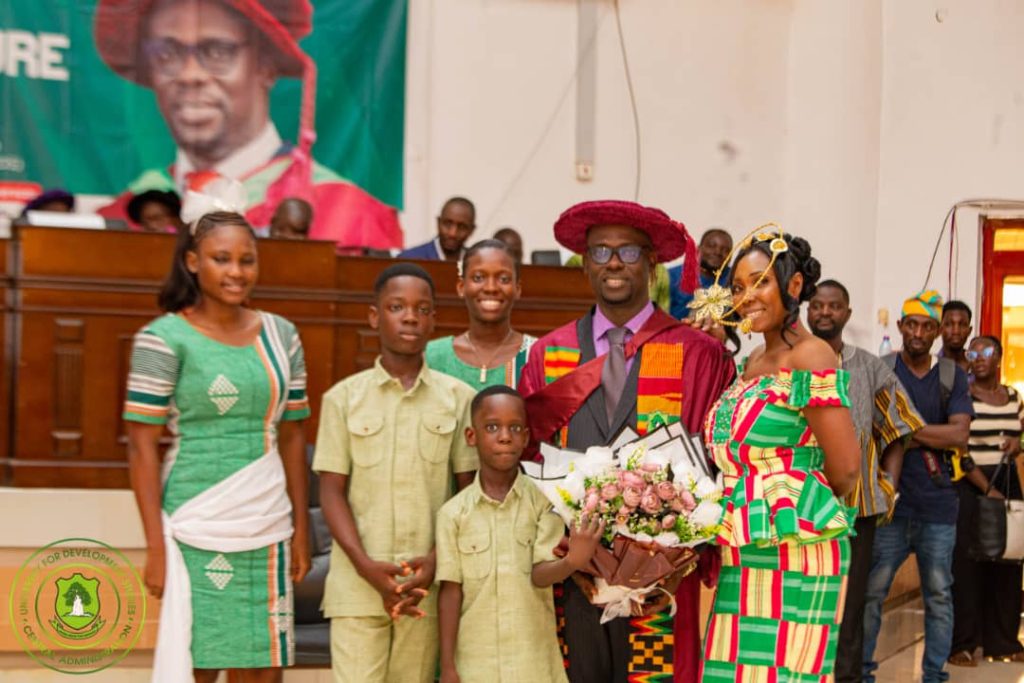By Solomon Gumah
Tamale, April 09, GNA – Professor Terry Ansah, Dean, Faculty of Agriculture, Food and Consumer Sciences, University for Development Studies (UDS), Nyankpala Campus, has called for innovative and sustainable practices to transform goat and sheep farming particularly in the country’s Savannah agro-ecological zone.
Professor Ansah, who made the call while delivering his inaugural lecture as a full Professor of Animal Sciences during the 19th professorial inaugural lecture of UDS in Tamale, highlighted the critical need for improved management systems in livestock farming in the northern part of the country.
He touched on the four key systems in livestock management including extensive, semi-intensive, tether-extensive, and intensive saying each of the systems had their distinct feed requirements and sustainability challenges.
He said: “A central issue is the nutritional feed gap, which is worsened by seasonal fluctuations in feed availability and quality. During the dry season, pasture biomass significantly decreases limiting the nutrients available to livestock.
“This feed scarcity adversely affects the growth and productivity of goats and sheep ultimately threatening the sector’s contribution to national food security.”
The lecture, themed: “Feeding the Future: Transforming Sheep and Goat Farming in the Arid and Semi-Arid Zones through Innovative Feed Solutions”, was attended by stakeholders from academia, traditional authorities, the clergy, security agencies among other stakeholders.
Professor Ansah explained that his research focused on integrating improved feeding systems into livestock management to support policy-driven interventions that ensured successful small ruminant farming in the country.

He noted that heavy reliance on natural pastures coupled with increasing competition for land use further worsened the challenges, often leading to conflict between livestock keepers and crop farmers.
To address these issues, he emphasised the importance of incorporating indigenous forage species and browse plants into small ruminant feeding systems saying, “When selecting the best forage for a given environment, factors such as yield consistency, seasonal availability, and cost-effectiveness must be considered.”
He also highlighted the role of supplementary feed options such as groundnut, cowpea, and pigeon pea residues, which could provide additional nutrition for livestock.
Professor Ansah called for strategic investments in feed production, research, youth entrepreneurship, and policy-driven initiatives to combat feed scarcity and improve livestock nutrition.
He called on the government to extend the “Trainees Allowance” scheme to students in Agricultural Colleges to encourage more qualified individuals to enroll and build careers in agriculture.
Professor Seidu Al-Hassan, Vice-Chancellor of UDS described Professor Ansah as a multifaceted leader.
He said: “He is not just the Dean of the Faculty of Agriculture, Food and Consumer Sciences but also the President of the UDS Alumni Association and Chairman of the Board of Directors of the UDS Guest Houses in Tamale and Accra. These roles reflect his versatility and unwavering commitment to UDS and the broader community.”
GNA
EA/BM